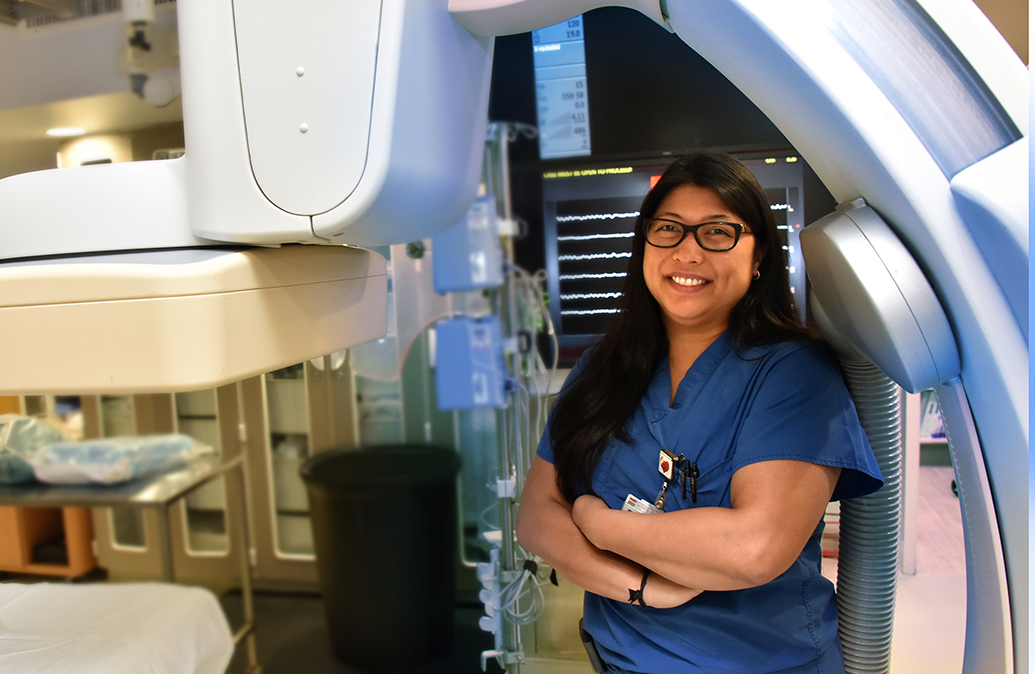When structural cardiologist Dr. Kimberly Atianzar brought the transcatheter aortic valve replacement (TAVR) program to Augusta University Health in 2018, she was one of only 10 women in the country specializing structural heart disease. She was also the only cardiologist in the country trained in interventional cardiology, advanced cardiovascular and imaging and structural heart disease.
On March 16, 2021, she performed her 100th and 101st TAVR procedure at AU Health.
Typically when a patient has a defect in the heart’s valves, walls or chambers – whether those defects occurred at birth or developed due to underlying health conditions – the damaged valve is removed and replaced during open-heart surgery. During a TAVR procedure, Atiazar places a collapsible valve inside the damaged valve using a catheter inserted through the groin.
At most medical centers that perform TAVR, patients are intubated and placed under general anesthesia. However, Atianzar only intubates patients when she can’t use the femoral artery and must find another way to access the valve.
“The thing that is really special about how we do it is we don’t intubate or put them under general anesthesia. They’re pretty much awake the whole time under just conscious sedation,” Atianzar said. “So they’re talking to us and they’re responsive if they have any issues. And we’re able to ask some questions and they respond. They’re not necessarily going to remember because of the medications, but they’re awake for the entire procedure.”
Not only is forgoing intubation more comfortable and less invasive for the patient, it allows Atianzar to treat more patients. Atianzar is now able to perform three valve replacements in a day, and the patient goes home the next day – fully functional. Patients do follow up with their cardiologists at 30 days and one year.
“No rehab needed,” she said.
Atianzar is trained in interventional cardiology, advanced cardiovascular imaging and structural heart disease. She is the only cardiologist in the country who is trained in all three specialties.


